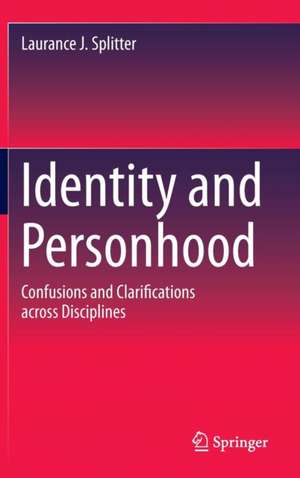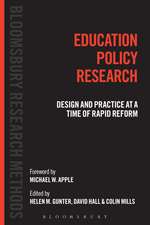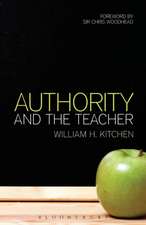Identity and Personhood: Confusions and Clarifications across Disciplines
Autor Laurance J. Splitteren Limba Engleză Hardback – 18 mai 2015
| Toate formatele și edițiile | Preț | Express |
|---|---|---|
| Paperback (1) | 363.13 lei 38-44 zile | |
| Springer Nature Singapore – 23 oct 2016 | 363.13 lei 38-44 zile | |
| Hardback (1) | 376.54 lei 38-44 zile | |
| Springer Nature Singapore – 18 mai 2015 | 376.54 lei 38-44 zile |
Preț: 376.54 lei
Nou
Puncte Express: 565
Preț estimativ în valută:
72.06€ • 74.80$ • 60.09£
72.06€ • 74.80$ • 60.09£
Carte tipărită la comandă
Livrare economică 21-27 martie
Preluare comenzi: 021 569.72.76
Specificații
ISBN-13: 9789812874801
ISBN-10: 9812874801
Pagini: 230
Ilustrații: XV, 220 p.
Dimensiuni: 155 x 235 x 18 mm
Greutate: 0.51 kg
Ediția:2015
Editura: Springer Nature Singapore
Colecția Springer
Locul publicării:Singapore, Singapore
ISBN-10: 9812874801
Pagini: 230
Ilustrații: XV, 220 p.
Dimensiuni: 155 x 235 x 18 mm
Greutate: 0.51 kg
Ediția:2015
Editura: Springer Nature Singapore
Colecția Springer
Locul publicării:Singapore, Singapore
Public țintă
ResearchCuprins
Preface.- Chapter 1 Introduction.- Chapter 2 The formal home of identity: mathematics and logic.- Chapter 3 Identity in the world of objects and their kinds.- Chapter 4 Natural kinds and identity.- Chapter 5 Who or what am I?.- Chapter 6 The world of persons and the Principle of Personal Worth I.- Chapter 7 Religions, nations, cultures, traditions, roles and other supra-persons: The Principle of Personal Worth II.- Chapter 8 Identity, personhood and education.
Notă biografică
Laurance J. Splitter studied at Monash University and the University of Oxford as a Rhodes Scholar. He is currently Professor of Education and Philosophy at the Hong Kong Institute of Education, where he is also Director of General Education. He is a renowned scholar and educator in the field of Philosophy for Children and was responsible for introducing philosophy into Australian schools and classrooms during the 1980s and 1990s. He has published widely on such topics as transforming classrooms into communities of inquiry, values and citizenship education, dialogue and issues relating to identity, citizenship and culture and cultivating the life of the mind. He reaches, with one hand, into the murky but intriguing depths of analytic philosophy and, with the other, to the practical reality of classrooms, teachers and learners, in an attempt to sharpen the way students and teachers think about important issues. He also seeks to reconcile his esteem for family, friends and colleagues with his suspicion of collectives, nations, traditions and roles.
Textul de pe ultima copertă
This book approaches the concept of identity from both logical-linguistic and socio-cultural perspectives, and explores its implications for our understanding of who or what we persons really are. In the process, it bridges disciplines that often remain disconnected - most notably analytic philosophy and the social sciences - and offers a novel critique of citizenship and moral education, "identity politics", and other contemporary domains of inquiry. Although the book has a multi-disciplinary focus, it is philosophical in its overall orientation (but accessible to readers from outside philosophy) and educational in its mission (but of interest to readers who are not formally educators). Chapters 2-5 discuss the philosophical and (where appropriate) scientific dimensions of identity, chapters 6-7 explore its socio-cultural dimensions and chapter 8 examines its educational dimensions and implications. The book will be of particular interest to those researching or teaching civics, citizenship education and moral education, as well as those involved in cultural, political and religious studies in a broader sense. It will also appeal to anyone who finds him- or herself wondering about the state of the world in the Twenty-First Century, and who suspects that rethinking what it means to be a person in that world might not be a bad idea.
Caracteristici
Restores a strengthened conception of person to centre stage at a time of widespread uncertainty when many traditional sociocultural boundaries are being ignored, reinforced or blurred Reconceptualises a number of key ideas about education (for example, the central place of dialogue and community) in novel ways Provides a welcome conceptual clarity to questions regarding personal identity, citizenship, moral education and the role of language Includes supplementary material: sn.pub/extras









